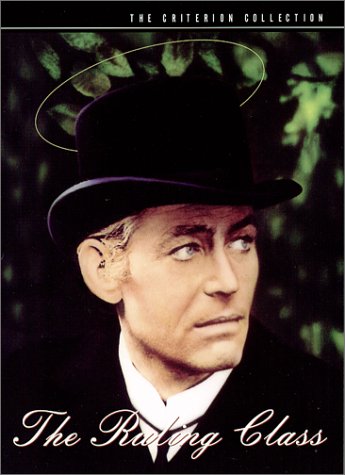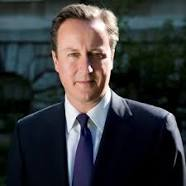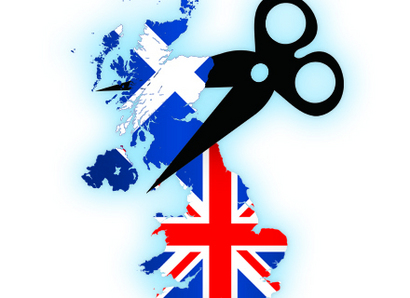Britain’s Election Fit for a Lunatic Asylum: The Complicated Mess that is the UK

“After the election every Westminster politician will have to come and face the reality of the electorate’s judgment. There is no disrespect or disgrace in any politician coming to terms with the democratically expressed position of the electorate. All politicians, those of us who are lucky enough to be elected, chosen by the people, will try to do their best as they see it in the interests of the people who elected them.” Alex Salmond, ex-First Minister of Scottish Parliament, now running for a seat in Westminster
Where much of the electorate is concerned politicians, apart from a noble few, will do their best in the interests of their particular elite. It’s all lies and dodgy statistics pulled out of a magician’s hat in the form of a politician’s mouth. Almost all the UK general election campaign has been based on the shifting sands of political-speak. The ‘main’ parties are finally realising, far too late, that this election is like no other.
What is at stake? The economy; the tax system; the National Health Service; welfare; education and housing – these are the main issues that touch people’s lives and which are being treated in a way that creates little except increasing inequality between the rich and the poor.
Westminster loves money and big business. Those MPs losing their seats in the election won’t worry about unemployment; they will move smoothly into a directorship here and there, and go on influencing harmful government policies.
The economy is not in the happy position Cameron insists it is. He says the ‘deficit’ has decreased and so it has, but not by nearly as much as was promised. He will not mention that the national debt has greatly increased under his government. Despite George Osborne saying the UK is doing better than most other countries, the economic growth dropped to 0.3 percent.
Everyone except the rich wants to see a reform of a tax system that favours the rich; an end to tax evasion, an end to ‘non-dom status; an end to the ultra-rich not paying their share; and an end to a financial hub (London) populated by billionaires but where there is no affordable housing for street cleaners, firemen, nurses and those others providing essential services. London boroughs removed 50,000 families over the last three years while selling off various social housing schemes for ‘development’.
Education has long suffered from the reforms that each new government brings in, none of which are based on consultation with teachers. Schools trying to balance their budgets sold off their land for development, leaving no sports and unhealthy pupils. Some schools have the burden of Private Finance Initiative interest payments, something that is paupering the NHS.
The NHS, the jewel in the UK’s social crown, the one creation that is the envy of the world. Super-Tory Oliver Letwin declared back in 2004 that the NHS will not exist within 5 years of an all-Tory government. But even under the Coalition, piece by piece, bits of the NHS are being privatised.
Cameron claims we have more people in work than ever before. Those jobs are mostly low paid or ‘zero hour contracts’, so generate little tax revenue and do not contribute to ‘growth’. And never will the government admit that many of these ‘wage earners’ earn so little they have to seek housing benefits or resort to food banks to feed their children. But the ‘austerity’ plans will cut deeper, whether Tory or Labour sits in Number 10.
This country is governed by politicians who, living in the Westminster bubble, have no idea how the majority live, constantly juggling their meagre budgets. They have no idea how insecure so many of their constituents feel. The oddity is that these people either don’t vote any more, or keep voting them into power without considering the paucity of choice on the ballot papers. That is slowly changing. People want a ‘none of the above’ option on the ballot papers. 60 percent want voting reform, but not the alternative vote system they were offered, and rightly refused.
This country is broken. It is worth more than money, the one value system our leaders have.
David Cameron believed the Tories could win an outright majority, but if the British public backed him. Ed Miliband was insisting that he was only focused on winning outright. Yet all the time their parties were running neck and neck, and neither was achieving a rating much above 33 percent. From the start it was clear there would be no outright winners; that deals would have to be made on all sides to get any form of government established.
It is no longer a two-horse race between Tory and Labour. In many ways it never has been. As John Warren writes :
“… not a single British Government in the whole 20th century managed to break the magical 50% threshold and actually represented the majority of the British people: indeed, in recent decades British governments have struggled consistently to breach the 40% mark. Now they fail even to garner enough votes in a biased system, to rally one-third of the electorate behind them, or even to establish a single-party majority of MPs in a Parliamentary FPTP system that is effectively designed to allow unjustifiably small minorities (well below 50% of the popular vote) to control Parliament. There could be no better example of the collapse of the electors’ trust in Parliament and Politicians than this relentless decline; this tidal-wave of electoral failure; this spiral downwards that ends in just this shoddy 2015 Westminster campaign; the commonplace peddling of deceit and defeat as success and triumph.”
He is right to call the campaign ‘shoddy’. With increasing desperation the voters have been offered outrageous pledges in an effort to gain the support of the poor, the young, the rich, the elderly, the ‘hard-working families’ (a Cameron favourite). It isn’t that the sums don’t add up. It is that no one will show the sums to the voters. They are, as usual, being asked to vote on blind faith. But they don’t have that faith any more. Promises have been broken too often.
Mostly the electorate are being asked not to vote for all those other parties that might affect the result. The LibDems, who were part of the last Coalition government, have sunk right down in popularity. Supporters felt betrayed that they had ‘got into bed’ with the Tories, and many decided they would not vote for them again. But they may win just enough seats to enable them to renew the coalition.
UKIP are –well – UKIP. They only have one reason for existing: their desire to get Britain out of the EU. They are also hot on stopping immigration. But although some Tory MPs and quite a few voters have defected to UKIP, the party has lost several candidates during the campaign, not a few having had to step down because of racist or sexist statements and the like. But they are a genuine threat to the Tories, witness Cameron’s frightener to Tory voters: “Vote UKIP, get Labour”.
The Green Party, despite a poor campaigning start by their leader Natalie Bennett, has seen a surge in membership; in fact, apart from the spectacular rise of the Scottish National Party, they are the only party to do so. If the UK had a Proportional Representation system, they would now win around 33 seats rather than the miserable one that is projected.
In Wales, voters have to consider the Welsh nationalist party, Plaid Cymru. Their leader Leanne Wood has taken part in a TV debate or two, and certainly got applause for confronting the bombastic UKIP leader, Nigel Farage. It is difficult to make any kind of guess about where Plaid Cymru will be once the votes are counted. But Welsh voters, had they been paying any attention at all as to what has been happening in Scotland, may think again about their own country. They might also react to being almost ignored by the national media during the campaigning.
Northern Ireland – now there’s a place that is almost invisible in debates, speeches and the media. They really must be feeling ignored. Despite Cameron refusing to rule out a coalition deal with the Democratic Unionist Party which is, among other things, homophobic, this would upset the other Northern Ireland parties. The peace process there is ongoing, and shouldn’t be derailed simply because Cameron wants to stay in power.
The real game-changer, the cuckoo in the nest, is Scotland and the Scottish National Party, the SNP. In last year’s referendum on independence, Scotland voted to stay in the United Kingdom but, because of the insincerity of Westminster’s promises (they were going to give SO much to Scotland if only they would vote No), the SNP saw a massive surge in members. Now one of the largest parties in the UK, it genuinely threatens the very existence of Labour north of the border where once it was powerful – which resulted in Labour’s frightener Vote SNP, get Tory.
The SNP will win a sizeable number of the Scottish seats, although they may not achieve the total wipe-out predicted by some. Whoever tries to form a government after Thursday’s election will have to take them into account because they will have enough votes to prevent policies from going through. Vitally, they will have the power to vote down the Queen’s Speech, without which no government can govern.
Scotland’s First Minister Nicola Sturgeon, while not standing for election to Westminster, has impressed whole swathes of the UK. Articulate, well informed and always cool in debate, she has shown what a politician can and should be. She and her party are determined to end the ‘austerity’ programme that has punished so many people already poor and disadvantaged. It follows that she will do what she can to keep the Tories out of government.
The hatred, viciousness and bile that has been heaped on her head by all the Westminster parties and the national media is extraordinary – and shaming. Called a ‘cult’ leader and ‘the most dangerous woman in politics’ she has been continually accused of trying to break up the Union. She has repeated over and over that, as Scotland voted to stay in the Union that is where they now are, and she will work for the benefit of the whole country. Indeed, the sheer nastiness of the language makes it clear that if (or when) Scotland does go independent the responsibility will rest on the shoulders of Cameron, Miliband et al.
 Alone among the big party leaders, she is comfortable in the crowds, going everywhere she can on foot, talking to everyone and not a security man in sight. For our party leaders have become toxic – local campaigners have asked them to stay away. Nor are they anxious to tangle with the genuine public. Cameron in particular has not just avoided head-to-head televised debates with his opponents, but his itinerary has been arranged to avoid any embarrassing encounters, although that failed when he met little Lucy. He prefers visits to factories and construction sites where he can be seen looking serious in hard hats.
Alone among the big party leaders, she is comfortable in the crowds, going everywhere she can on foot, talking to everyone and not a security man in sight. For our party leaders have become toxic – local campaigners have asked them to stay away. Nor are they anxious to tangle with the genuine public. Cameron in particular has not just avoided head-to-head televised debates with his opponents, but his itinerary has been arranged to avoid any embarrassing encounters, although that failed when he met little Lucy. He prefers visits to factories and construction sites where he can be seen looking serious in hard hats.
The LibDem leader Nick Clegg on the other hand talked to a hedgehog. And Ed Miliband, well, he unveiled a very large stone carved with a list of Labour’s promises, which he said would be installed in the garden of Number 10 if he became Prime Minister. Someone unkindly pointed out he would have trouble getting planning permission. And we voters are expected to take these people seriously?
What we shall wake up to on Friday is anybody’s guess. It could include Cameron refusing to get out of Number 10, as Edward Heath had done in 1974, while he tries to cobble together another coalition with the depleted LibDems; Miliband having another attempt at categorically refusing to do a deal with the SNP while his colleagues point out this is the only way into Number 10; the LibDems licking wounds inflicted by disillusioned voters; UKIP wildly celebrating the winning of a few seats and telling us the UK has voted to get out of Europe; and the SNP, along with much of the UK, wondering how soon they can sever the ties to the barking-mad political bubble of Westminster.


